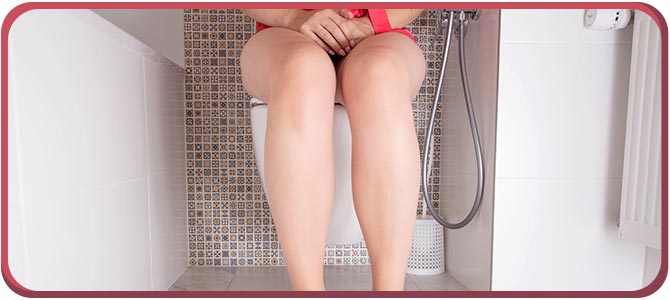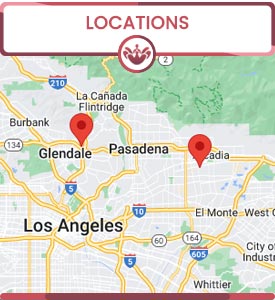How Is Rectal Prolapse Treated?
If you feel Rectal pain, pressure, and bleeding or an inability to control your bowel movements, you might need a rectal prolapse specialist. You can meet Dr. Prema Kothandaraman, MD for rectal prolapse treatment at The OB-Gyn & Incontinence Center. For further information, and guidance contact us or book an appointment online. You can also visit our clinics in Arcadia, CA, and Glendale, CA.




Table of Contents:
What is Rectal Prolapse?
What are the symptoms of Rectal Prolapse?
What causes Rectal Prolapse?
Can you prevent Rectal Prolapse?
Rectal prolapse is relatively uncommon, as approximately 2.5 in every 100,000 individuals experience it — according to the National Institutes of Health (NIH). However, rectal prolapse can cause several problems for individuals who experience it. On this page, you can find helpful information about rectal prolapse, including what it is, its symptoms and causes, and how you can prevent it from occurring.
Rectal prolapse is a condition where part of your rectum slips outside your anus. Your rectum forms the lowest section of your large intestine, while your anus is the muscular opening at the end of your digestive tract.
While this condition is often painful, doctors rarely consider it a medical emergency. The only instance when rectal prolapse requires emergency treatment is if a doctor cannot push the rectum back inside the anal opening. When doctors are unable to push the rectum back inside the anal opening, it can lead to a complication called strangulation, where the blood supply to the rectum is cut off.
In the event of a prolapsed rectum that will not go back into the anal opening, doctors will likely need to perform surgery to repair the rectal prolapse. The surgery may take place through the abdomen, rectum, or both. If it occurs through the abdomen, the surgeon will make an incision in the lower belly and attach the rectum to the lower part of your backbone for support and stabilization. If your doctor performs rectal prolapse surgery through the rectum, they will remove the prolapsed part of the rectum and join the two ends.
Rectal prolapse can present with several symptoms, such as:
● Bulging feeling in the anal region after you cough, sneeze, or lift an object
● Discharge of mucous in your stool
● Rectal pain, pressure, and bleeding
● Fecal incontinence, or an inability to control your bowel movements
● Constipation or diarrhea
● Anal bleeding, itching, or pain
● Feeling as though your rectum remains full after having a bowel movement
The most common cause of rectal prolapse is the weakening of the muscles that support your rectum and keep it in place. However, it’s not always clear why a person may experience rectal prolapse. Pregnancy and childbirth are often associated with rectal prolapse. Still, a third of women who experience rectal prolapse haven’t given birth. Moreover, men can also experience rectal prolapse. With that in mind, some conditions other than pregnancy or childbirth that can increase your risk of experiencing a rectal prolapse include:
● Aging
● Chronic diarrhea
● Cystic fibrosis
● Dementia
● Excessive use of laxatives
● Spinal cord injuries or conditions
● Straining with bowel movements
● Stroke
There are many things you can do to prevent rectal prolapse. Some steps you can take to prevent rectal prolapse from occurring are:
● Eating plenty of fiber and staying hydrated to avoid constipation or diarrhea
● Performing pelvic floor exercises like Kegels to strengthen your rectal muscles
● Treating chronic or persistent constipation or diarrhea when it occurs with medication or lifestyle changes
● Avoiding straining when having a bowel movement
If you’re concerned that you may be dealing with rectal prolapse, it’s always a good idea to seek medical attention for confirmation or treatment. Our obstetrician-gynecologists at The OB-GYN and Incontinence Center can provide excellent care to you if you experience rectal prolapse. For further information, and guidance contact us or book an appointment online. We have convenient locations to serve you. We serve patients from Arcadia CA, Glendale CA, Monrovia CA, Pasadena CA, Los Angeles CA, Burbank CA, and surrounding areas.


Additional Services You May Need
▸ Urogynecology
▸ Minimally Invasive Gynecology
▸ Monalisa & Medical Aesthetics
▸ Bioidentical Hormone Replacement Therapy
▸ Urinary Incontinence
▸ Pelvic Organ Prolapse
▸ Painful Bladder
▸ Urinary Tract Infection
▸ Genitourinary Syndrome of Menopause
▸ Female Sexual Dysfunction
▸ Urinary Retention
▸ Vaginal Laxity & Prolapse
▸ Postpartum Pelvic Floor Problems
▸ PCOD
▸ Bladder Prolapse Repair
▸ Urgent PC
▸ Fibroids
▸ Excessive Bleeding
▸ Pelvic Pain
▸ Birth Control & IUD
▸ Vaginal & Pelvic Infection
▸ Monalisa Touch
▸ STD
▸ TempsureVitalia
▸ Biote Pellet Therapy
▸ Topical BHRT
▸ Flexsure
▸ Rectal Prolapse Repair
▸ Tempsure ENVI
▸ Minimally Invasive Pelvic Surgery for Incontinence



